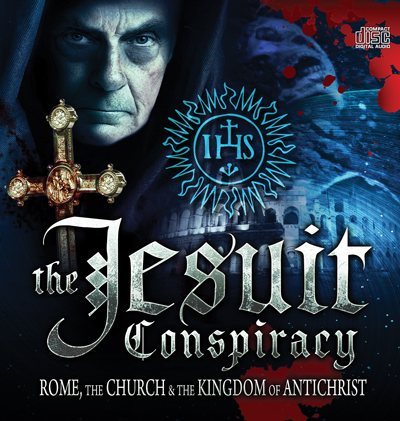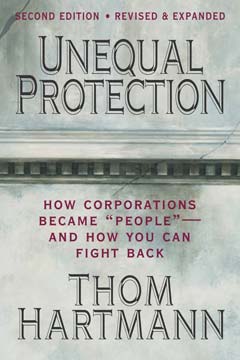 When confronted by the Puritanical rejection of holy days, such as Christmas and Easter along with the superstitious ceremonies that accompany these man made holy days, an Anchoretic Priest or Crypto Catholic Pastor and the common modern day Baptist Minister will appeal to the indifferency of these ceremonies. They will say that the holy day with its ceremonies is neither good nor bad. It is just a fun ceremony with no moral ties one way or another. Well, is it?
When confronted by the Puritanical rejection of holy days, such as Christmas and Easter along with the superstitious ceremonies that accompany these man made holy days, an Anchoretic Priest or Crypto Catholic Pastor and the common modern day Baptist Minister will appeal to the indifferency of these ceremonies. They will say that the holy day with its ceremonies is neither good nor bad. It is just a fun ceremony with no moral ties one way or another. Well, is it?
Before I begin I wanted to provide some keys definitions of terms Gillespie uses from The Metaphysics of the School Vol. 2, by Thomas Norton Harper pg. 755,
“IN ACTU SIGNATO, IN ACTU EXERCITO. These two terms are used by the Schoolmen to distinguish between two conjoined effects sometimes resulting from the same action. An effect is said to be in actu signato, which is directly intended (so to speak) by the action. Thus, the impression produced in the wax by a seal is the effect in actu signato. An effect is said to be in actu exercito, when it is a necessary concomitant result of the same action, though not directly intended. Thus, in the above instance the cooling of the wax resulting from contact with the seal is in actu excercito.”
The following is taken from George Gillespie’s English popish Ceremonies, pg. 214-217,
“CHAPTER IX.
A RECAPITULATION OF SUNDRY OTHER REASONS AGAINST THE INDIFFERENCY OF THE CEREMONIES.
Sect. 1. That the ceremonies are not indifferent to us, or such things as we may freely practise, we prove yet by other reasons:
For, 1. They who plead for the indifferency of the ceremonies must tell us whether they call them indifferent in actu signato, or in actu excercito ; or in both these respects. Now, we have proven, that there is no action deliberated upon, and wherein we proceed with the advice of reason, which can be indifferent in actu exercito, and that because it cannot choose, but either have all the circumstances which it should have (and so be good), or else want some of them, one or more (and so be evil). And for the indifferency of the ceremonies in actu signato, though we should acknowledge it (which we do not), yet it could be no warrant for the practice of them, or else the believing Gentiles might have freely eaten of all meats, notwithstanding of the scandal of the Jews, for the eating of all meats freely was still a thing indifferent, in actu signato.
Sect. 2. The ceremonies are not indifferent eo ipso, that they are prescribed and commended unto us as indifferent; for, as Aquinas resolveth out of Isidore, every human or positive law must be both necessaria ad remotionem malorum and utilis ad consecutionem bonorum. The guides of God’s church have not power to prescribe any other thing than that which is good and profitable for edifying; for they are set not as lords over Christ’s inheritance, but as ministers for their good : ” It seemed good to the Holy Ghost and to us, (say the apostles and elders to the churches,) to lay upon you no greater burden than these necessary things,” Acts xv. 28. They would not, you see, have enacted a canon about those things, howbeit indifferent in their own nature, had they not found them necessary for the eschewing of scandal. And as for the civil magistrate, he also hath not power to prescribe any thing which he pleaseth though it be in itself indifferent; ” for he is the minister of God unto thee for good,” saith the Apostle, Rom. xiii. 4. Mark that word, for good,—it lets us see that the magistrate hath not power given him to enjoin any other thing than that which may be for our good. Non enim sua causa dominantur, saith Calvin; sed publico bono ; neque effrceni potentia prcediti sunt, sed quce subditorum saluti sit obstricta. Now, the first and chief good which the magistrate is bound to see for unto the subjects, is (as Pareus showeth), bonum spirituale. Let us, then, either see the good of the ceremonies, or else we must account them to be such things as God never gave princes nor pastors power to enjoin ; for howsoever they have power to prescribe many things which are indifferent, that is to say, neither good nor evil in their general nature, yet they may not command us to practise any thing which in the particular use of it is not necessary or expedient for some good end.
3. The ceremonies are not indifferent, because, notwithstanding that they are prescribed and commended unto us as things in themselves indifferent, yet we are by the will and authority of men compelled and necessitated to use them. Si vero ad res suo natura medius accedat coactio, &c., then, say the Magdeburgians. Paul teacheth, Col. ii., that it is not lawful to use them freely : ” If ye be dead with Christ from the rudiments of the world, why, as though living in the world, are ye subject to ordinances (touch not, taste not, handle not, which are all to perish with the using), after the commandments and doctrines of men.” Hence is Tertullian taxed for inducing a necessity in things indifferent. Now, with how great necessity and co-action the ceremonies are imposed upon us, we have made it evident elsewhere.
Sect. 4. 4. Whatever be the quality of the ceremonies in their own nature, they are not indifferent to us; neither may we freely practice them, because Papists make advantage of them, and take occasion from them to confirm sundry of their errors and superstitions, as we have likewise elsewhere made evident…
Sect. 5. 5. Things which are most indifferent in themselves become evil in the case of scandal, and so may not be used. So hold the Century writers ; so Pareus ; so Zanchius ; so Chemnitius ; so Augustine ; and so hath the Apostle taught.[1 Cor 8:8-9] But that out of the practice of the ceremonies there groweth active scandal unto the weak, we have most clearly proven. Wherefore, let them be in their own nature as indifferent as anything can be, yet they are not indifferent to be used and practised by us; and whosoever swalloweth this scandal of Christ’s little ones, and repenteth not, the heavy millstone of God’s dreadful wrath shall be hanged about his neck, to sink him down in the bottomless lake; and then shall he feel that which before he would not understand.
Sect. 6. 6. It is not enough for warrant of our practice that we do those things which are indifferent or lawful in themselves, except they be also expedient to be done by us according to the Apostle’s rule, 1 Cor. vi. 12. But I have proven that many and weighty inconveniences do follow upon the ceremonies [pg. 188], as namely, that they make way and are the ushers for greater evils; that they hinder edification, and in their fleshly show and outward splendour, obscure and prejudice the life and power of godliness; that they are the unhappy occasions of much injury and cruelty against the faithful servants of Christ, that they were bellows to blow up, and are still fuel to increase the church-consuming fire of woeful dissentions amongst us, &c. Where also we show,that some of our opposites themselves acknowledge the inconveniency of the ceremonies ; wherefore we cannot freely nor indifferently practise them.
Sect. 7. 7. These ceremonies are the accursed monuments of popish superstition, and have been both dedicated unto and employed in the public and solemn worship of idols, and therefore (having no necessary use for which we should still retain them) they ought to be utterly abolished, and are not left free nor indifferent to us, which argument I have also made good elsewhere…Yea, Joseph Hall himself, doth herein give testimony unto us, for upon Hezekian’s pulling down of the brazen serpent, because of the idolatrous abuse of it, thus he noteth:” God commanded the raising of it, God commanded the abolishing of it. Superstitious use can mar the very institutions of God, how much more the most wise and well-grounded devices of men ! And further, in the end of this treatise, entitled, The Honour of the Married Clergy, he adjoineth a passage taken out of the epistle of Erasmus Roterodamus to Christopher, Bishop of Basil, which passage beginneth thus: ” For those things which are altogether of human constitution must (like to remedies in diseases) be attempered to the present estate of matters and times. Those things which were once religiously instituted, afterwards, according to occasion, and the changed quality of manners and times, may be with more religion and piety abrogated.” Finally, If Hezekiah be praised for breaking down the brazen serpent (though instituted by God) when the Israelites began to abuse it against the honour of God, how much more (saith Zanchius5) are our reformers to be praised, for that they did thus with rites instituted by men, being found full of superstitious abuse, though in themselves they had not been evil!
Sect. 8. 8. The ceremonies are not indifferent, because they depart too far from the example of Christ and his apostles, and the purer times of the church ; for instead of that ancient Christian-like and soul-edifying simplicity, religion is now by their means busked with the vain trumpery of Babylonish trinkets, and her face covered with the whorish and eye-bewitching fairding of fleshly show and splendour; and I have also showed particularly how sundry of the ceremonies are flat contrary to the example of Christ and his apostles and the best times.
Sect. 9. 9. The ceremonies make us also to conform, and like the idolatrous Papists, whereas it is not lawful to symbolise with idolaters, or to be like them in a ceremony of man’s devising, or anything which hath no necessary use in religion ; such a distance and a dissimilitude there is required to be betwixt the church of Christ and the synagogue of Satan ; betwixt the temple of God and the kingdom of the beast; betwixt the company of sound believers and the conventicles of heretics who are without; betwixt the true worshippers of God and the worshippers of idols, that we cannot, without being accessory to their superstitious and false religion, and partaking with the same, appear conform unto them in their unnecessary rites and ceremonies. Durandus tells us, that they call Easter by the Greek and not by the Hebrew name, and that they keep not that least upon the same day with the Jews, and all for this cause, lest they should seem to Judaise. How much more reason have we to abstain from the ceremonies of the church of Rome lest we seem to Romanise ! But I say no more in this place, because I have heretofore confirmed this argument at length..
Sect. 10. 10. The ceremonies, as urged upon us, are also full of superstition; holiness and worship are placed in them, as we have proven by unanswerable grounds, and by testimonies of our opposites themselves. Therefore were they never so indifferent in their own general nature, this placing of them in the state of worship maketh them cease to be indifferent.
Sect. 11. 11. The ceremonies against which we dispute are more than matters of mere order, forasmuch as sacred and mysterious significations are given unto them, and by their significations they are thought to teach men effectually sundry mysteries and duties of piety. Therefore they are not free nor indifferent, but more than men have power to institute ; for except circumstances and matters of mere order there is nothing which concerneth the worship of God left to the determination of men, and this argument also hath been in all the parts of it fully explained and strengthened by us, which strongly proveth that the ceremonies are not indifferent…
Sect. 12. 12. Whatsoever indifferency the ceremonies could be thought to have in their own nature, yet if it be considered how the church of Scotland hath once been purged from them, and hath spued them out with detestation, and hath enjoyed the comfortable light and sweet beams of the glorious and bright shining gospel of Christ, without shadows and figures, then shall it appear that there is no indifferency in turning back to weak and beggarly elements, Gal. v. 9. And thus saith Calvin of the ceremonies of the interim, that granting they were things in themselves indifferent, yet the restitution of them in those churches which were once purged from them, is no indifferent thing. Wherefore, OScotland! “strengthen the things which remain, that are ready to die,” Rev. iii. 2. Remember also from whence thou art fallen, and repent, and do the first works ; or else thy candlestick will be quickly removed out of his place, except thou repent, Rev. ii. 5.”
No, the man made holy days and ceremonies of the Anchoretic Churches with their modern apostate would–be Protestant daughters are not indifferent. They are monuments of idolatry that should be forgotten forever. Our opponents will object that Protestantism’s iconoclasm has been at the root of the secular dominance of art in the past few centuries. What they fail to acknowledge is that our iconoclasm emphasized and gave rise to the most important art: Literature. After the Protestant Reformation, the world learned how to read, and the greatest writers in world history took the stage to dazzle the minds of mankind, not just the elite and the privileged. Thank you iconoclasm!
2 Responses »
 “Letter CXCII
“Letter CXCII
 Definitions:
Definitions:







-1-.jpg)

























